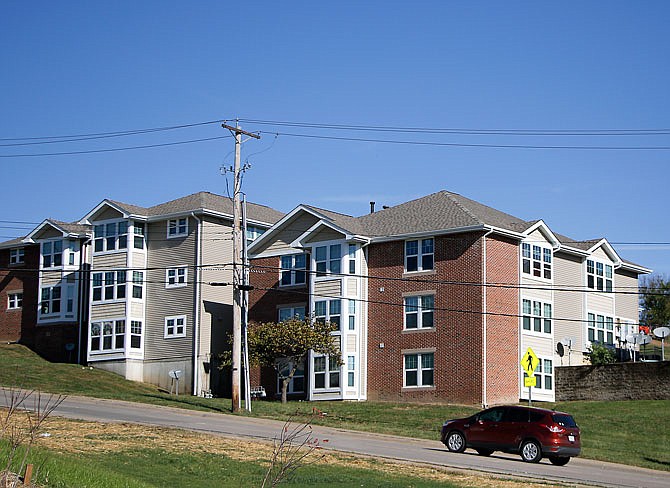The Missouri Emergency Rental Arrears Program to provide relief to property owners and tenants impacted by the COVID-19 pandemic and prevent tenants' evictions has been launched, the Missouri Housing Development Commission announced this week.
The rental arrears program, ERAP, will offer a one-time payment for up to six months of past-due rent dating back to April 1, 2020, directly to landlords on behalf of qualified tenants. In exchange, the landlords must agree not to file for eviction for non-payment for 120 days from the date an application is submitted and waive all fees and outstanding rent up to the date of application submission.
ERAP payment cannot be applied toward fees or utility bills.
Many Missouri families continue to be impacted by unemployment and underemployment because of the pandemic.
In October, the Common Ground Community Building nonprofit in Jefferson City noted in its application to the Cole County Commission for CARES Act funding: "We are receiving numerous applications for assistance every day from clients who have lost their jobs or who have lost hours due to COVID. Many people who are calling are asking for assistance for the first time in their lives. Helping them with rent and utilities helps keep them in their homes."
At the end of October, The Salvation Army also noted in its CARES Act funding request to the Cole County Commission that previous grants it had received from the United Way of Central Missouri to provide rent and utility assistance to families were disbursed at an average of $600-$800 per family "and were depleted at a rate of 12-15 cases per week, while we also gave them food from our food pantry. Our emergency services worker has a waiting list of additional families in need of rent and utility bill assistance, so we know these funds would show immediate benefit to these families and others trying to survive this crisis."
The state's unemployment rate had declined to 4.6 percent in October, but that was still significantly above what the rate had been before the pandemic took hold in March. The governor's office reported last month that 63 percent of the 346,000 jobs lost in the spring had been recovered - meaning approximately 128,000 jobs had not been recovered.
Common Ground and The Salvation Army's requests of $25,000 each in CARES Act funding were approved by the Cole County Commission.
The Missouri housing commission unanimously approved its rental arrears program last month. Steve Whitson, MHDC's community initiatives manager, told the commission the program would protect tenants once the federal moratorium on evictions expires Dec. 31 and would also get income to landlords, who aren't being funded during the moratorium.
Whitson added the rental arrears program would use $15 million of the $28 million in federal Coronavirus Aid, Relief and Economic Security Act funding MHDC has received - the rest going to nonprofits that work with the commission and provide services such as shelter and case management.
Tenant households who apply for ERAP through their landlords will have requirements including to certify the pandemic affected their ability to pay rent, they cannot have received any other assistance for the same costs for the same months requesting rental arrears, and photo IDs will have to be provided for all household members over age 18.
Tenant households who apply for ERAP must make below 50 percent of the area median income at the time of applying.
Area median income is based on the county where a property or unit is located and the number of people in the household.
Household income will be based on average income over the previous 30 days for all household members older than age 18. Income does not include government payments such as for shelter, utilities, food or child care, but does include Social Security, pensions, unemployment assistance and disability compensation.
There are also monthly rent maximums for what ERAP will pay: $712 for a studio; $854 for a one-bedroom; $1,027 for a two-bedroom; $1,380 for a three-bedroom; and $1,565 for a four-bedroom.
The median gross rent in Missouri in 2018 was $834, according to American Community Survey data from the U.S. Census Bureau. However, that cost can vary greatly by location.
Listings site Apartments.com reported average rent in Kansas City is currently $1,674 - $897 for a studio and $1,674 for a one-bedroom - and average rent in St. Louis is $898, with a studio there costing an average of $818 and a one-bedroom costing $898.
Because small landlords and their tenants have been particularly vulnerable during the pandemic, "preference for ERAP assistance will be given to small landlords with 10 or fewer units," according to MHDC.
For their part, landlords must be paid up on all their state and local taxes; must have a lease on file that matches that information for the unit seeking assistance; have to provide an itemized list of outstanding rental arrears, late fees and fines since April 2020; and the property must meet lead-based paint and federal habitability standards, among other requirements.
More information about ERAP is available at mohousingresources.com/erap.

